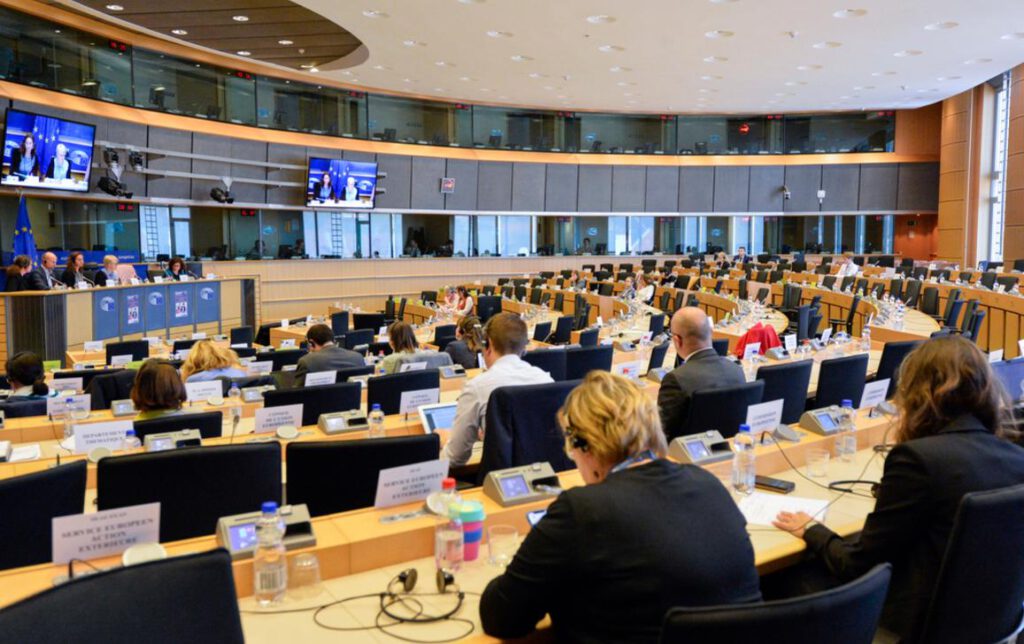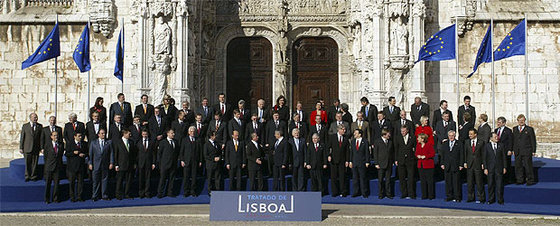The decision to continue to allow MEPs to interact under the radar with unregistered lobbyists fits into a longstanding pattern of pushback against transparency advances from the parliament’s centrist parties.

The European Parliament’s Constitutional Affairs Committee (Afco) on 12 April approved a report on enhancing the transparency of parliamentary proceedings while removing most of its amendments that would bindingly increase scrutiny of their own actions as parliamentarians.
The approval of the report follows after the adoption, at the end of last year, of an interinstitutional agreement (IIA) on a joint mandatory transparency register that would see the European Parliament, the Commission, and the Council all adhere to the same basic set of transparency rules for engaging with lobbyists. This IIA was already criticised by NGOs and academics for “stretching the definition of mandatory beyond normal uses of the word”, leaving each institution to work out its own rules while leaving MEPs and member state delegations out of its scope.

See also
Accepting the bare essentials
The recent Afco vote concerned an attempt, by MEP and former Commissioner Danuta Huebner, to make the application of this agreement more ambitious with regard to the EP, with amendments obliging both MEPs as well as their assistants to refrain from meeting unregistered lobbyists, which were overwhelmingly rejected by the committee members. The committee furthermore voted to remove all references to the word “mandatory” from the report, the EUObserver reports.
The practice to shield MEPs from any external obligations, which has traditionally been upheld with a certain amount of discretion flanked by embarrassed silence, is now increasingly confidently defended as necessary to protect the representatives’ freedom of mandate. According to adherents to this view, any duty to disclose committee-level voting behaviour, engagement with third parties including unregistered industry representatives, and even discretionary budget expenditures could lead to undue pressure being exerted upon individual MEPs. This argument was already strongly defended by some activists in the US context for some time. In contrast to the common critique of EU civil society, there, it is argued that the comparatively high degree of mandatory transparency of US congress benefits corporate interests by allowing them to monitor representatives’ votes and rewarding/punishing representatives with campaign donations/defunding.
A legacy of warm words and cold feet
In its report, the EUObserver notes that while voting numbers in amendment votes are disclosed, these votes are not attributable to individual MEPs. In the case of the current vote, this covers up little, as key amendments were either way rejected by as many as three quarters of the committee, although other amendment votes were closer calls.
The decision to conduct parts of parliamentary proceedings under conditions of confidentiality is part of a longstanding legacy in spite of repeated attempts (and limited successes) by reform-minded MEPs. In a trend characteristic of elected politicians across the western world, MEPs are quick to offer warm words for transparency and much indignation when the executive they oversee lacks it, but soon get cold feet when the camera is turned on themselves.
It caused EU Commissioner Timmermans to wrily quip in 2015 that while the parliament asks many questions of the Commission, it gets “irritated” when he turns the transparency question around. Indeed, the question of lobby transparency is part of a decade-long war of words between the European institutions.
Back in 2014, when attempts were made to make committee voting public by default, the EP’s two major (and coalition) groupings, the EPP (christian-democrats) and the S&D (social democrats), intervened in the last minute to postpone the vote. At the time, this blog argued that
“The compulsory vote proposal, which has now been put back into drawer, would restore some of the public accountability that is lost in the informal negotiation process.”
The vote was eventually forced a few weeks later, at which occasion the EP approved standard roll calls for committee votes, to be overruled only exceptionally. Votes on amendments however remained unattributable.
Lobby transparency to the vote
In 2019, the EPP invoked the exception to the public voting principle, when the EP voted on the question of publication of interactions with lobbyists by MEPs with key roles (such as, inter alia, rapporteurships), arguing that the vote concerned a delicate issue, publicity of which would put public pressure on these representatives to, in their view, restrict their own mandate by voting for more transparency. When this request for a secret vote was accepted, it was dismissed by an S&D representative as an attempt “to hide that many of their members will vote against publishing details of their meetings with lobbyists and big business”. The vote came months before the elections for the ninth European Parliament. In the event, the EPP again drew the short straw, with the Parliament voting overwhelmingly in favour of the proposal in spite of the secret vote.
At the same time, the accepted proposal stopped short of obliging all MEPs to disclose such contacts, merely “encouraging” them to do so. The latest vote continues that practice. While over the past decade the EP has thus slowly and reluctantly moved towards more mandatory disclosure, the latest vote has stopped this process in its tracks for now.

